One night in Beijing, walk through hutongs, eat roast duck, listen to Peking Opera, sleep in courtyard houses
Beijing has always been a dream travel destination.
Not because of the beautiful or steep mountains and rivers, not because of the colorful or peculiar national style, not because of the luxurious or romantic vacation style, but because of a temperament that is difficult to put simply.
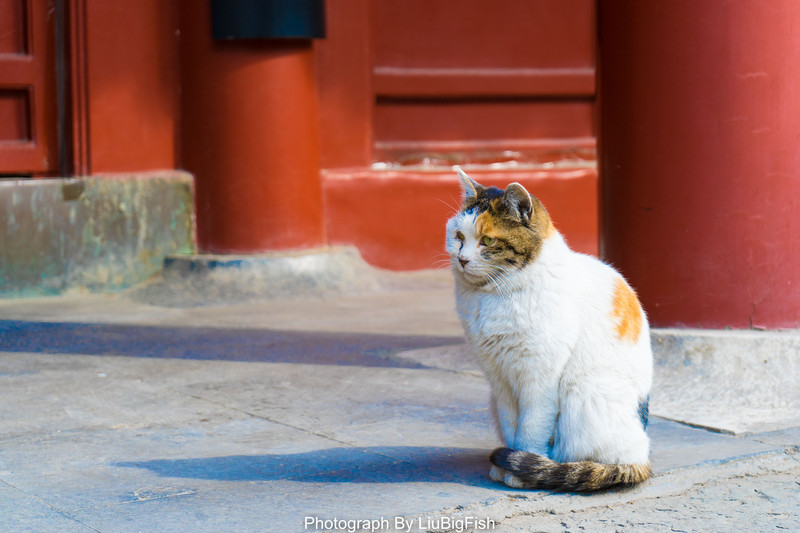
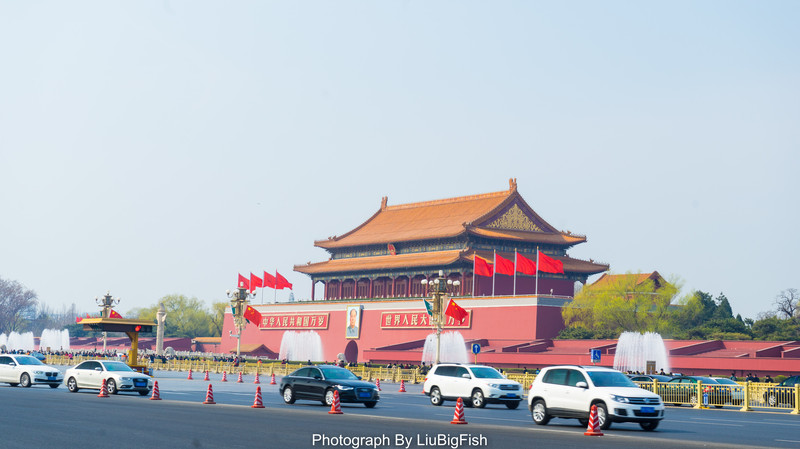
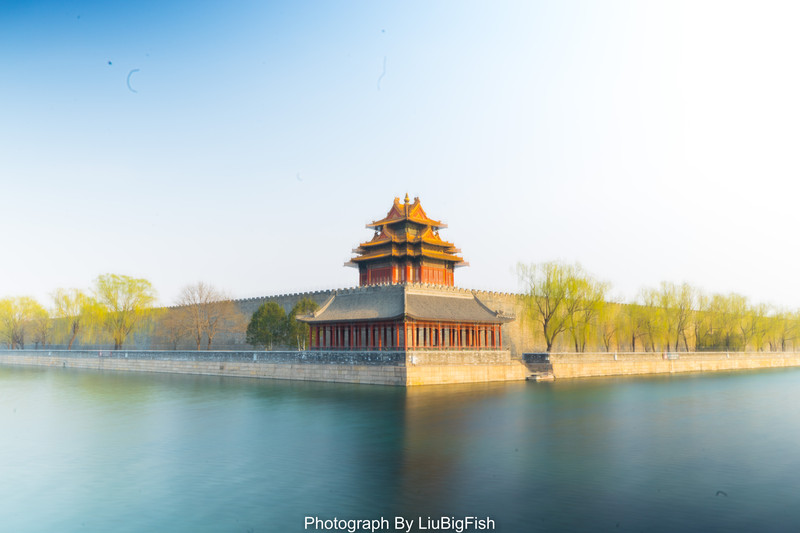
When I arrived in Beijing this time, I did not visit the Forbidden City, the Temple of Heaven, climb the Great Wall, or play Happy Valley. Instead, I chose a more down-to-earth and niche approach.
One night in Beijing may leave a lot of emotion behind.
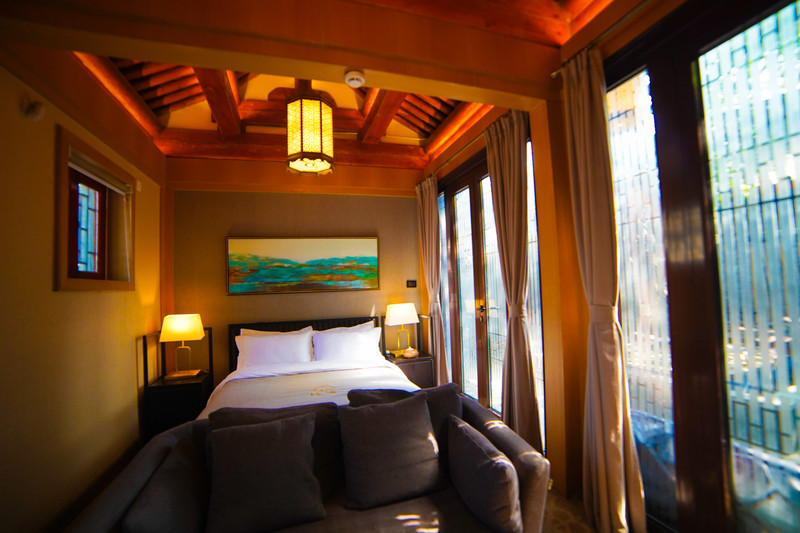
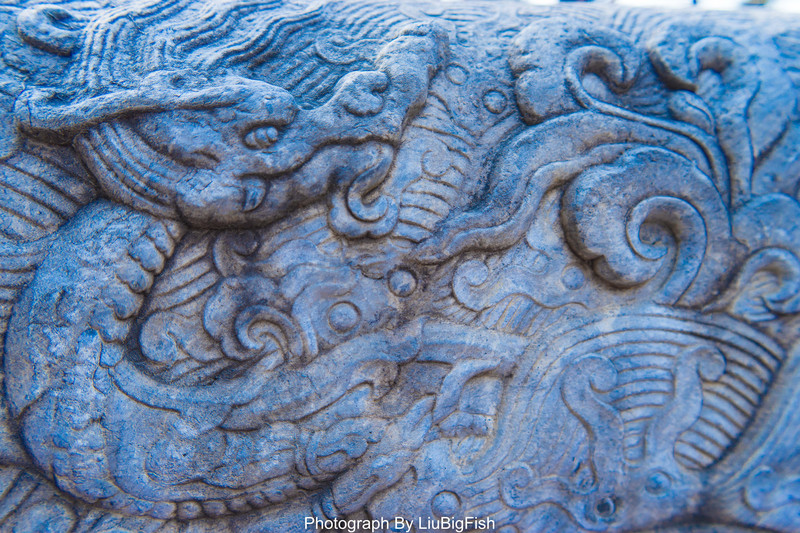
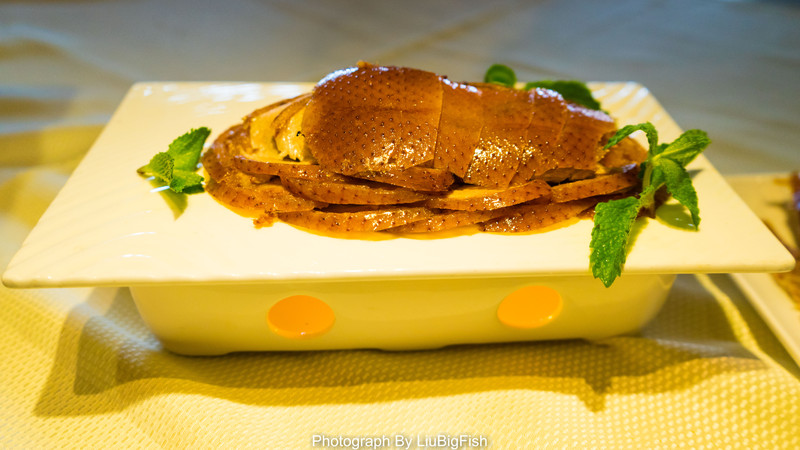
It takes about 5 minutes to read this article completely. It is recommended to collect it first, and the summary and evaluation are placed at the bottom of the article.
Hey, I am Liu Jingyu, a second-hand economist from overseas returnees in northern Europe and third-tier cities, a writer who has strayed into the travel circle, and a photographer who contracts contracts as he pleases... They are all my labels.
Note: It is not easy to shoot, and code words are even more difficult. All forms of theft of documents and pictures are strictly prohibited.
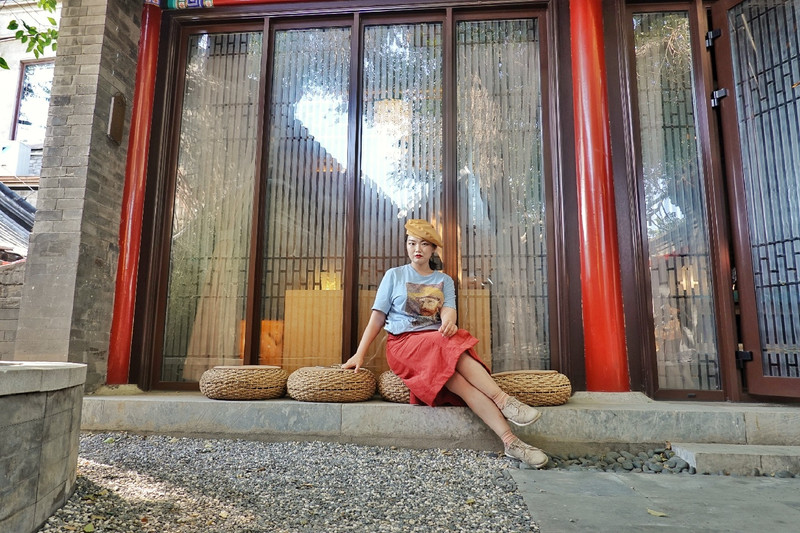
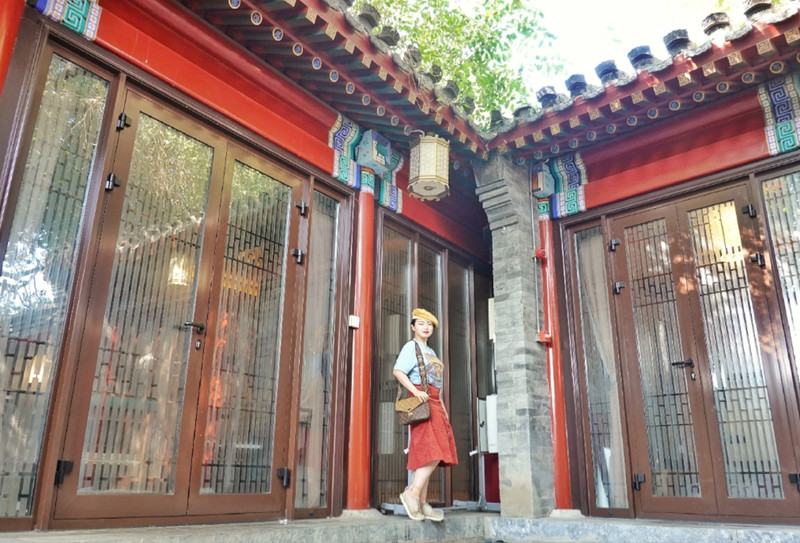
Searching for the Soul of Beijing from Fayuan Temple
I have read a lesser-known book by Li Ao called "Beijing Fayuan Temple".
Come here because of fame.
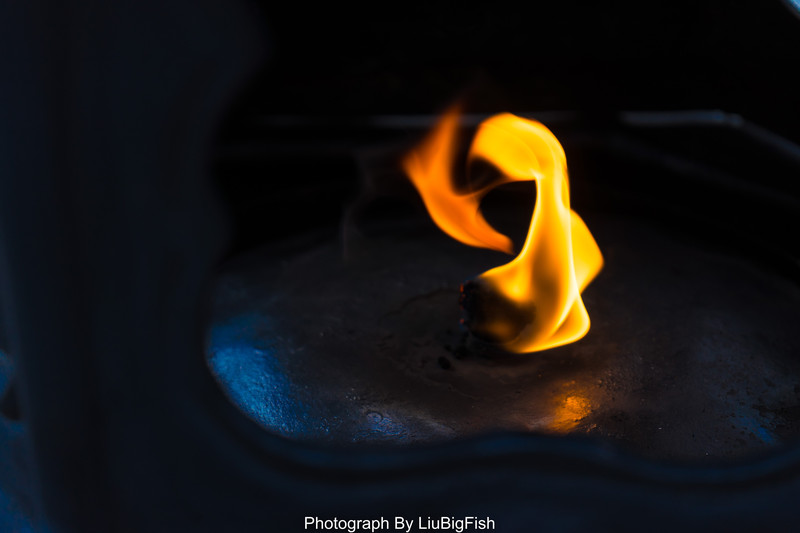
Fayuan Temple, formerly known as "Minzhong Temple", is the saddest and worst place in the capital. It is now the Chinese Buddhist Academy.
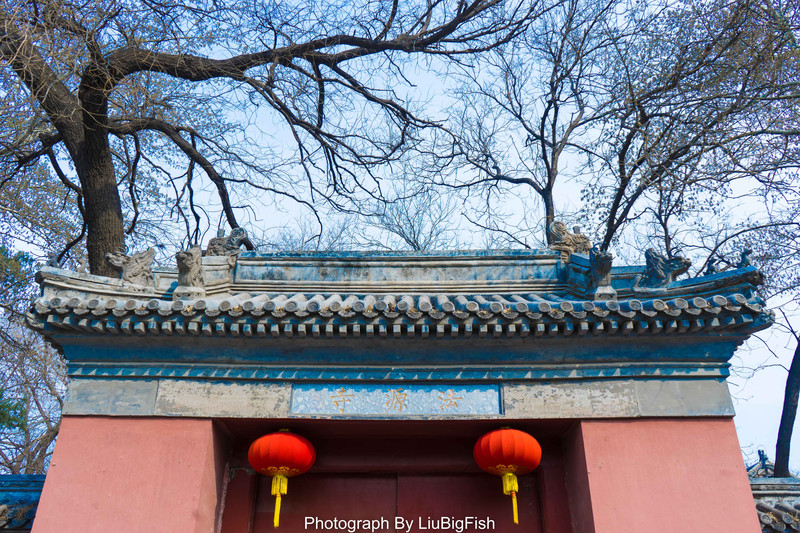
Li Ao took this opportunity to fully describe the philosophical trends and changes in modern China, and brought together Beijingers of different classes, different histories, and different outlook on life. If Tanzhe Temple came first and then Beijing City, then Fayuan Temple came first and then the Beijing Revolution.
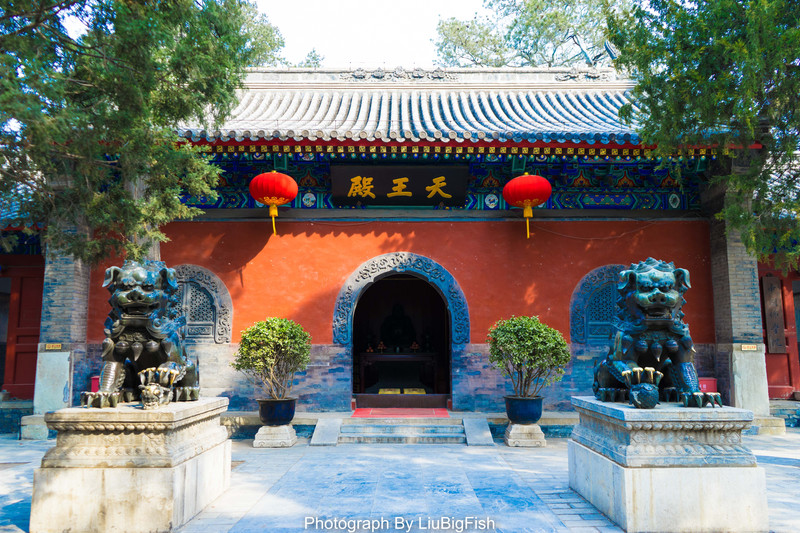
Beijing has been extraordinary since ancient times, with princes and generals and garrisons in the imperial city. However, as the dynasties changed, the souls of Beijingers were the root of Beijing.
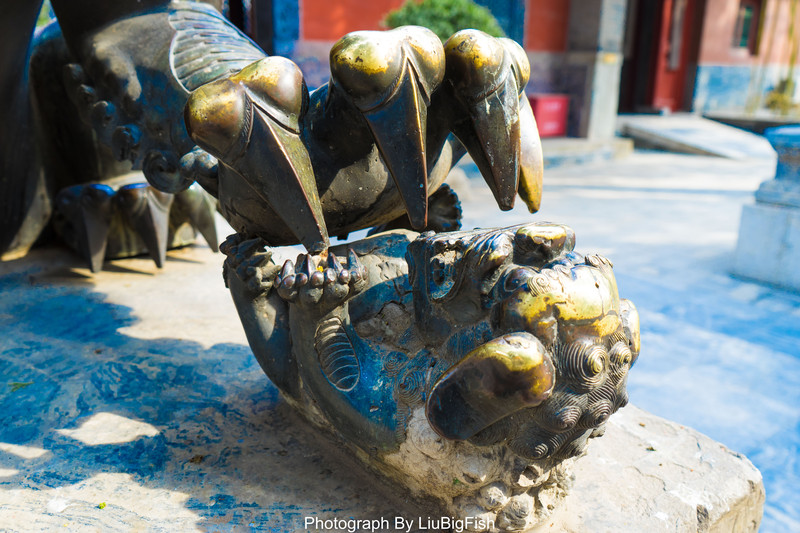
These streets and alleys, in and out of old Beijing, are used to seeing big shots and big events, and nothing can hinder their lives. Perhaps this is Beijing's truly charming gesture.
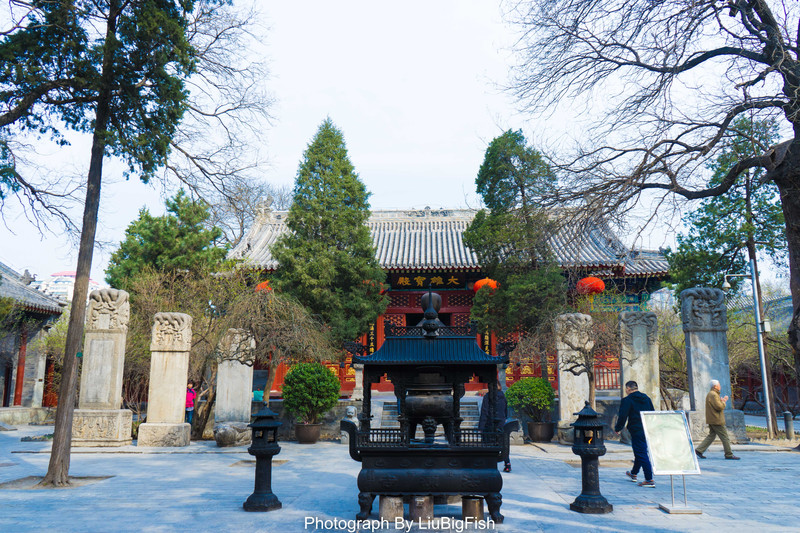
As passed down from generation to generation, Beijingers did not distinguish right from wrong for the sake of being knowledgeable. On the contrary, they are even more important and know the meaning of their lives. Just like the fire in Fayuan Temple is never prosperous or extinguished. It is a bright light in calm, and a spark in storms.
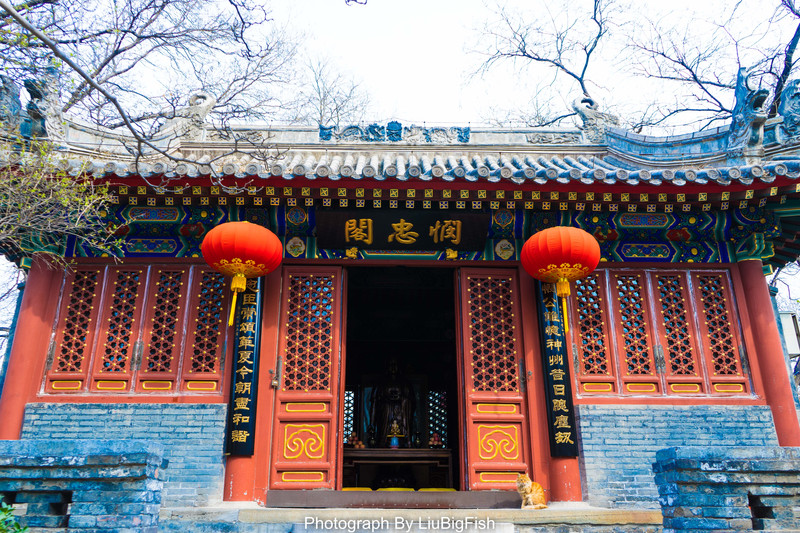
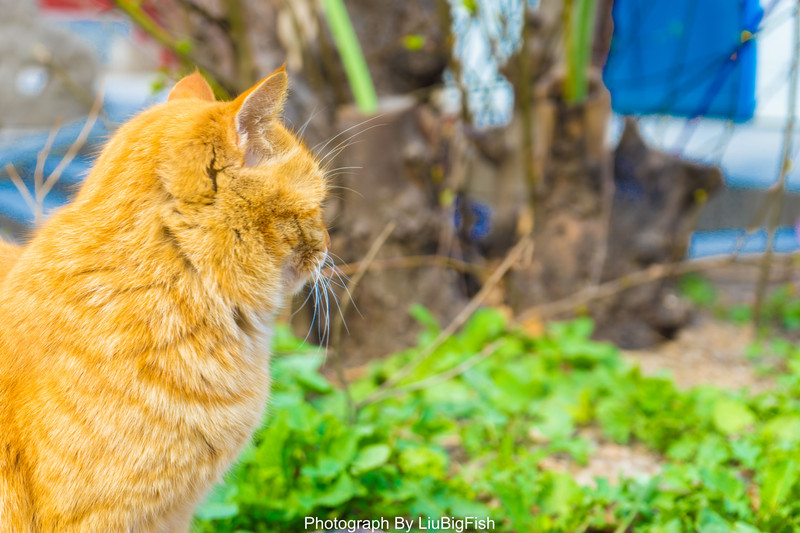
Taste crispy duck with Nicholas Tse
Roast duck is a famous dish in Beijing and originated during the Northern and Southern Dynasties in China. The material is high-quality meat duck and Beijing duck. It is roasted on fruit charcoal and has a rosy color. The meat is fat but not greasy. It is crispy on the outside and tender on the inside. During the early Ming Dynasty, ordinary people loved to eat Nanjing cured duck, and so did the emperor. It is said that Zhu Yuanzhang, the founder of the Ming Dynasty,"ate a roast duck in a solar eclipse." The royal chefs in the court tried every means to develop new ways to eat duck dishes to please the Lord, so they also developed two kinds of roasted pork roast duck and braised roast duck. The roast pork roast duck is represented by "Quanjude", while the braised roast duck is most famous for "Bianyifang".
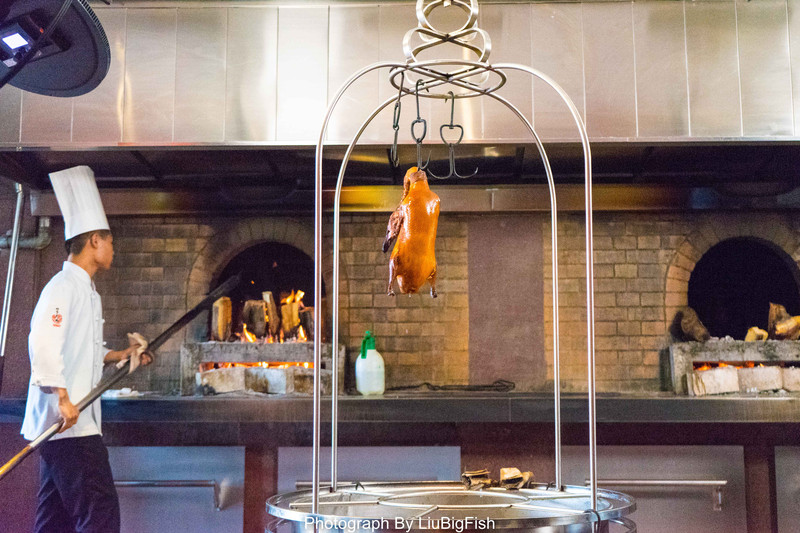
Beijing roast duck is fragrant, fat and sweet. People who came from the material poverty era can be happy for three days if they eat a bite of Beijing roast duck with lingering fragrance on their cheeks. However, with the improvement of living standards and people's pursuit of health, no one likes to eat fat ducks anymore. As a result, Beijing Roast Duck has also been derived and improved into many new styles.
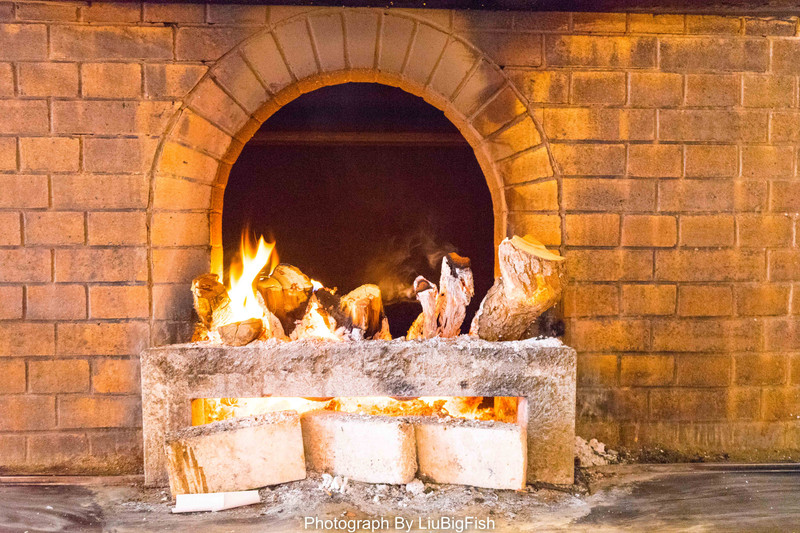
Genuine Beijingers will not go to Quanjude to eat ducks. Going to Quanjude to eat ducks seems to Beijingers to be a long brain, expensive and unpalatable. Old Beijing chooses Cheap Fang, and Beijing's juniors choose Da Dong. In different circles, the same duck aroma overflows.
I chose the Four Seasons People's Blessings outside Donghua Gate.
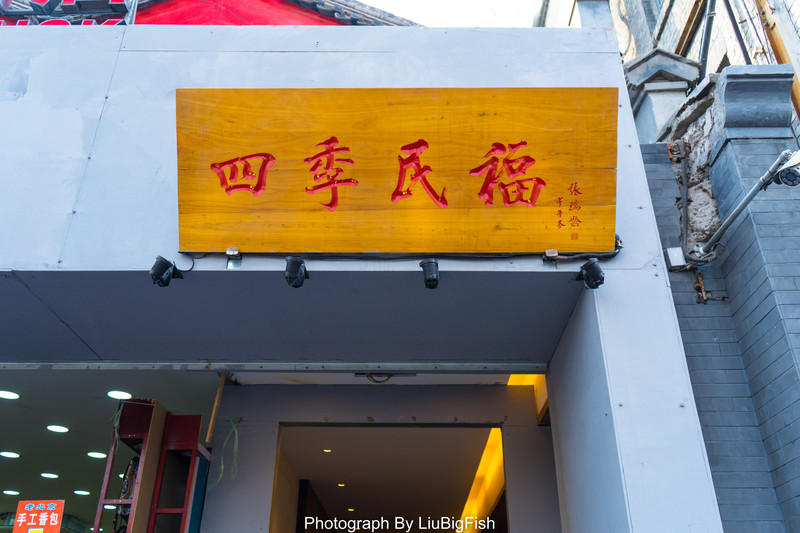
Sure enough, I had a unique vision. As soon as I sat down next to the stove, I encountered the filming of Nicholas Tse's food program. In this way, I watched the entire recording of the program from the vvip position and received Nicholas Tse's handshake.


Nicholas Tse asked very seriously about the characteristics and secret recipes of the Four Seasons Minfu Roast Duck. It turned out that everything from the stove to the firewood to the ducks was ingenious. I just listened and ate, watching the idol beautiful and delicious, and eating the duck sweet and delicious. I don't know if the saliva left on my lips was for the idol or the duck.
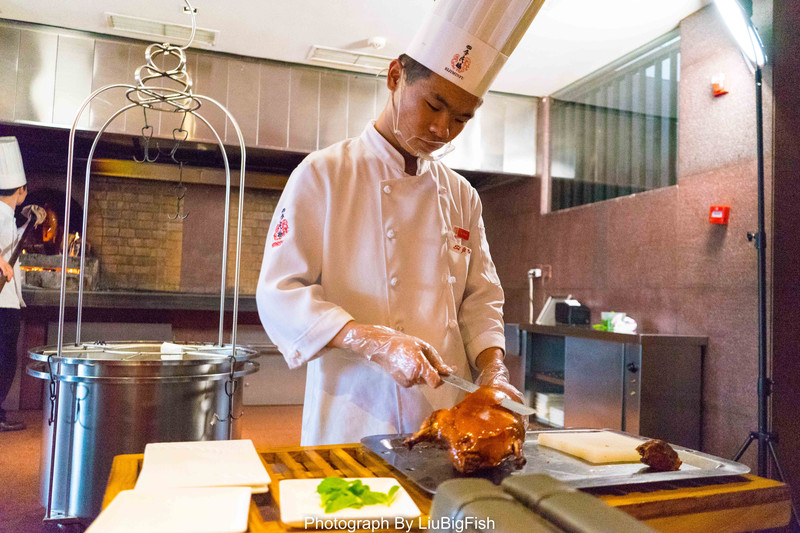
In addition to ducks, Beijing snacks are also indispensable. Four Seasons Minfu selects the most popular dishes to form a snack platter.
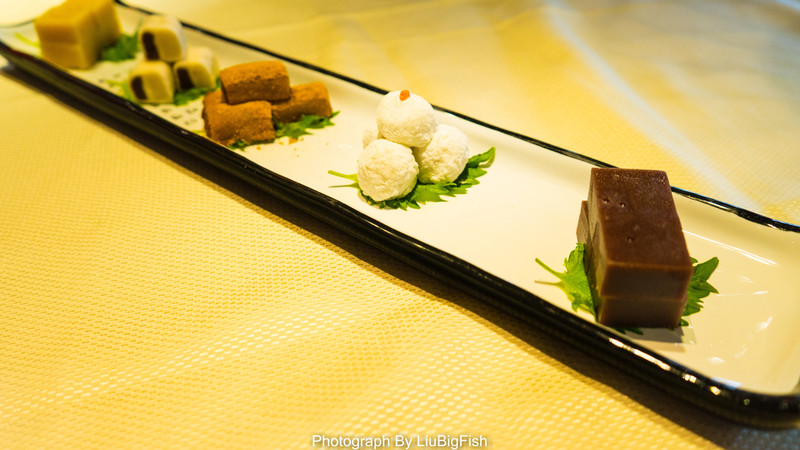
Through the terrace is the moat of the Forbidden City, and Donghua Gate is close at hand. It's really a fairy day here.
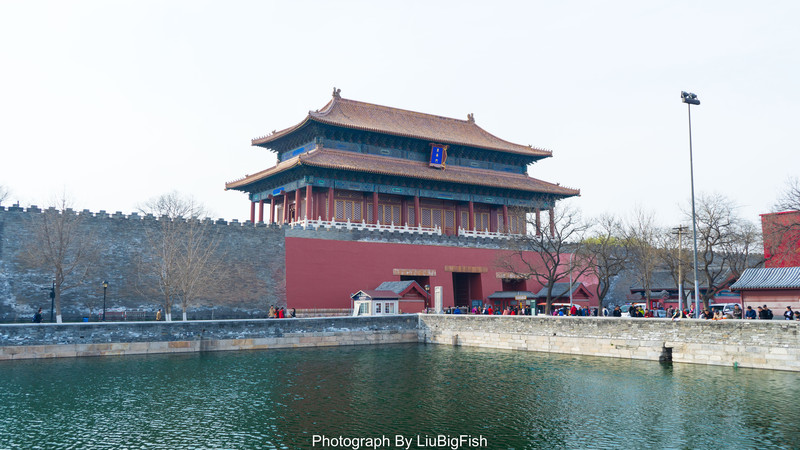
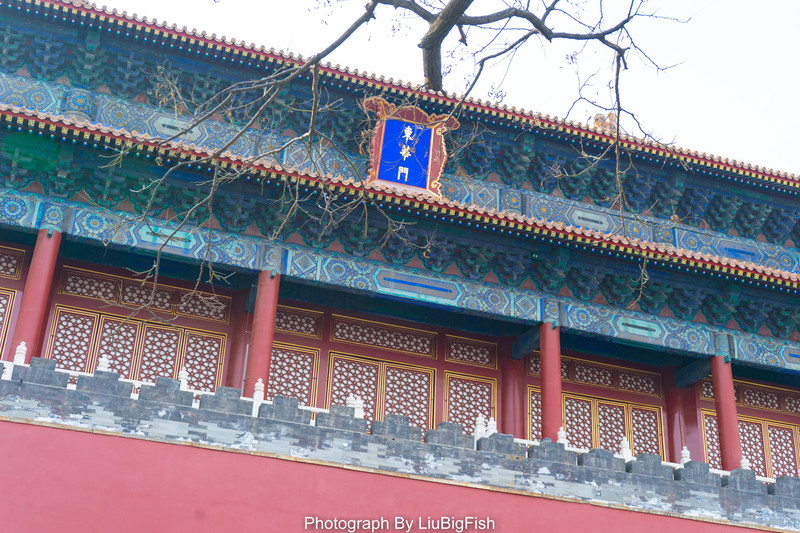
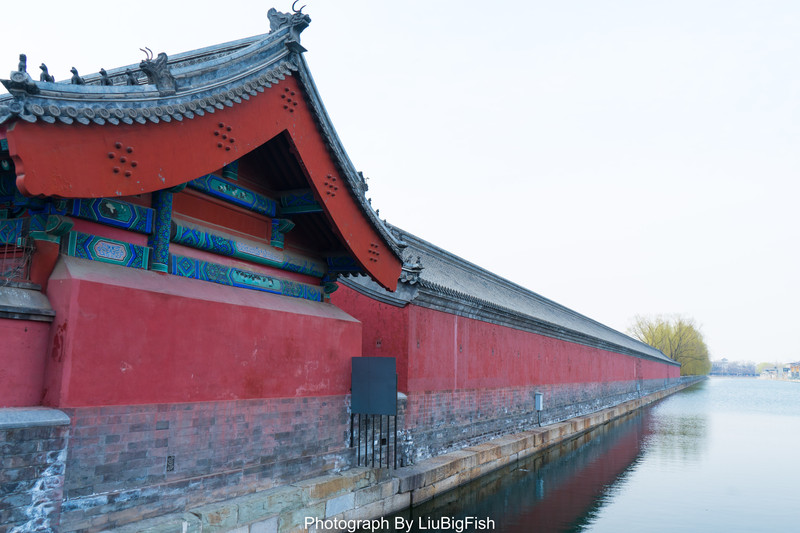
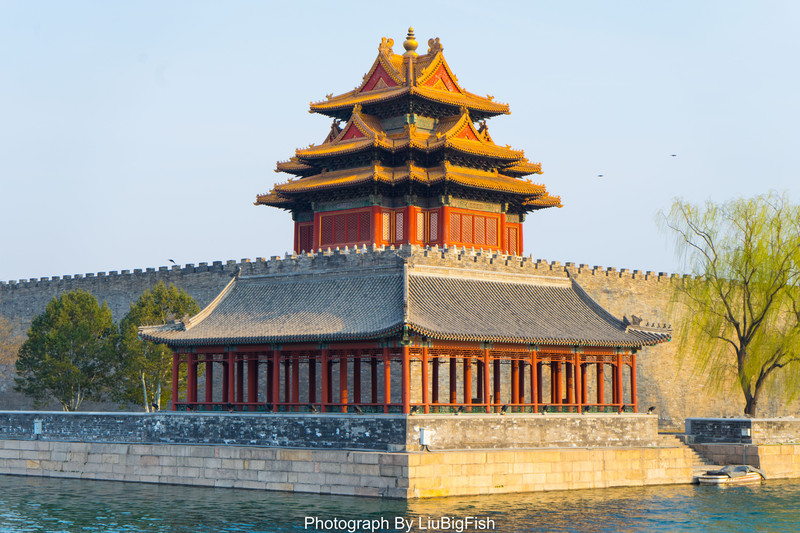
Remembering Mei Lanfang and exploring Peking Opera
Zhengyi Temple, adjacent to Tiananmen Square in the east and Liulichang Cultural Street in the south, is an ancient theater building with a pure wooden structure with a history of more than 300 years. It is also the only pure wooden theater building in Beijing that has been basically intact. It is a milestone in the history of the development of Chinese theater buildings. It is praised by scholars as "a living fossil in the history of Chinese theater culture" and has extremely high visiting value and historical and cultural research value.
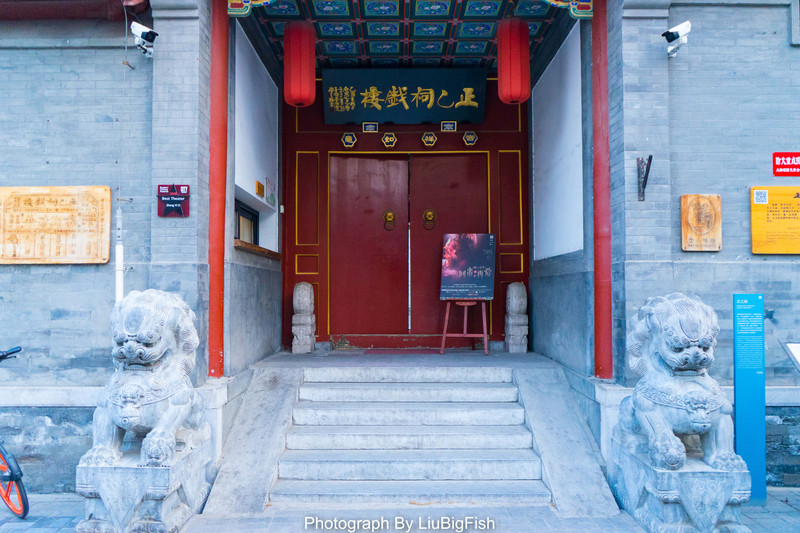
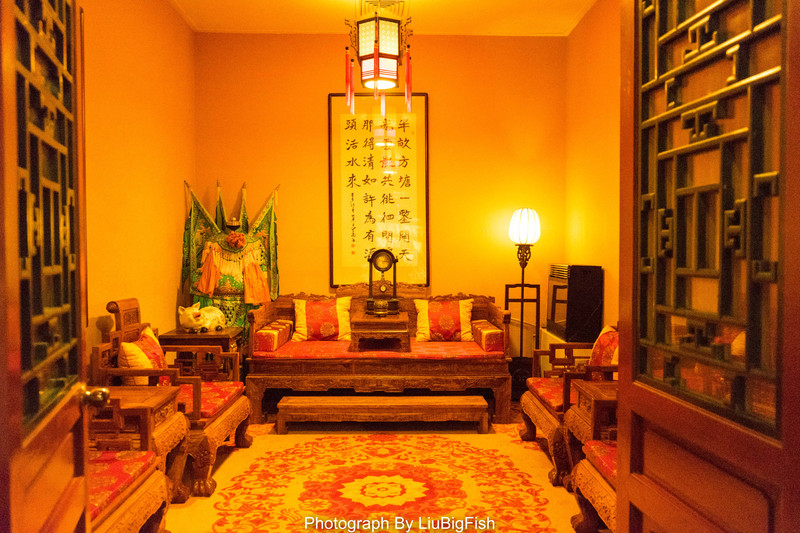
The Zhengyi Temple Theater is divided into two floors. If you perform a fairy Tao opera, the actors playing the fairy can fall from the sky.
The red wood carving railing of the theater shines brightly under the light of the lights.
There is no microphone in the theater, and the actors 'voices are more authentic, which is also a test of their voices.
There is also a couplet hanging directly in front of the theater building: "There are no previous generations in contemporary times to perform joys and sorrows. There are often people in the theater."
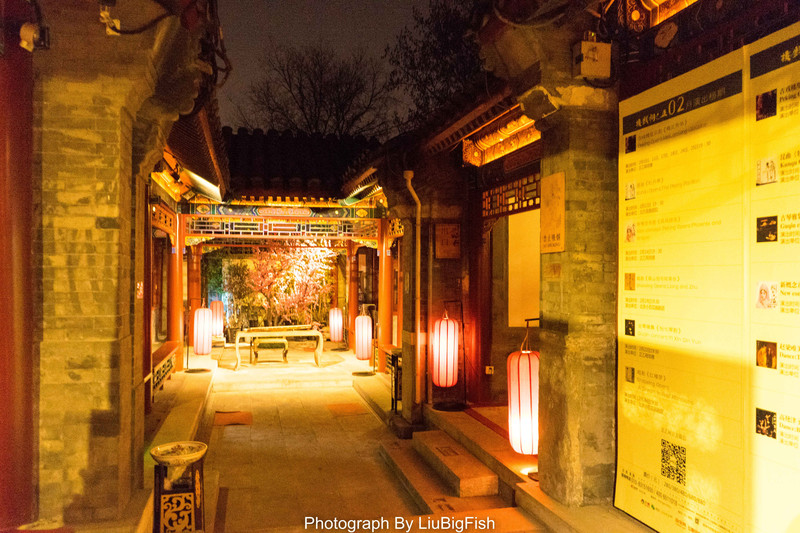
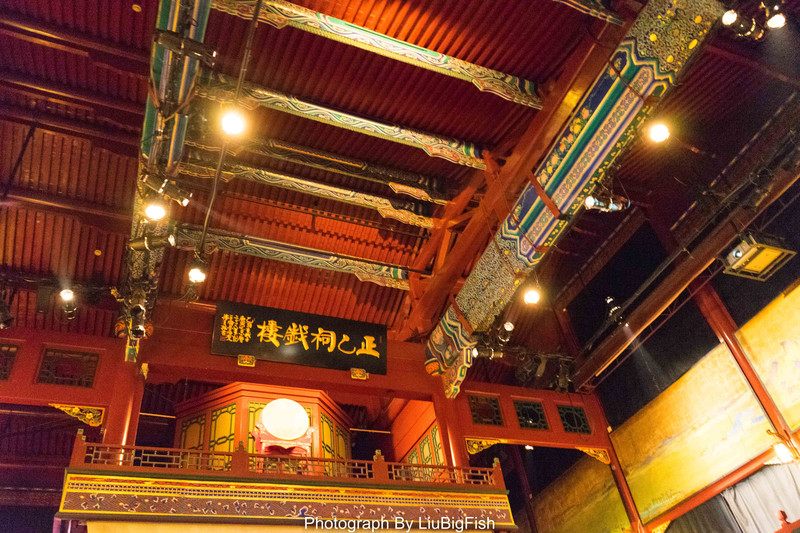

Boss Mei Lanfang and Boss Mei Baojiu have both performed their art here. Classic songs of the Plum School such as Tiannu Dispersing Flowers, Luoshen, Drunken Concubine, Farewell Concubine and other plum school have the opportunity to be re-displayed on this antique stage this year.
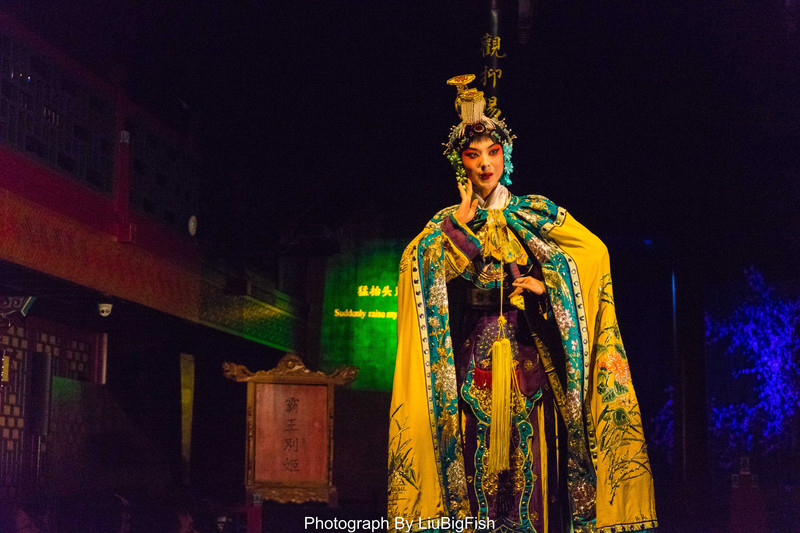

From the moment you enter the gate, you feel like you have entered the palace of opera. Whether it is the staff or the souvenir shop, you can still enjoy the charm of Beijing everywhere.
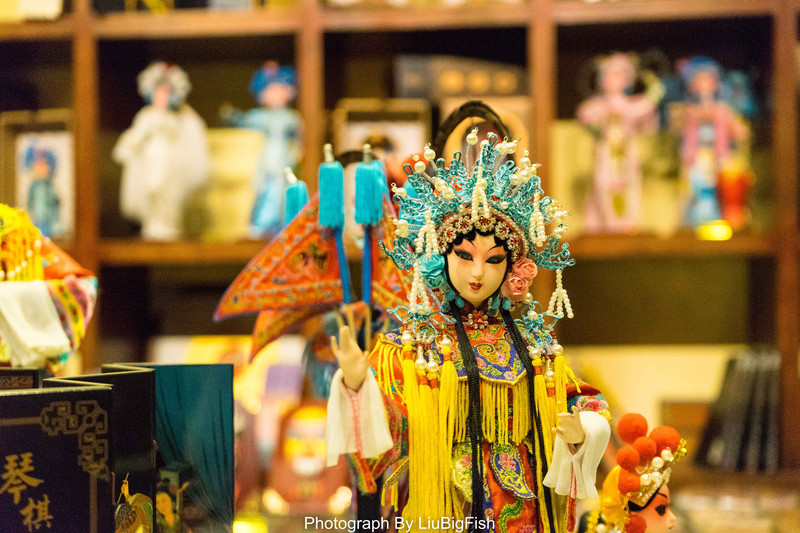
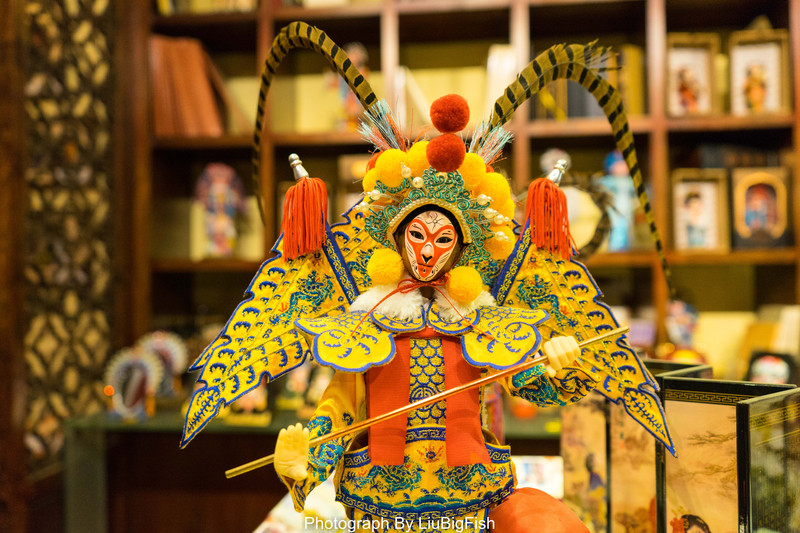
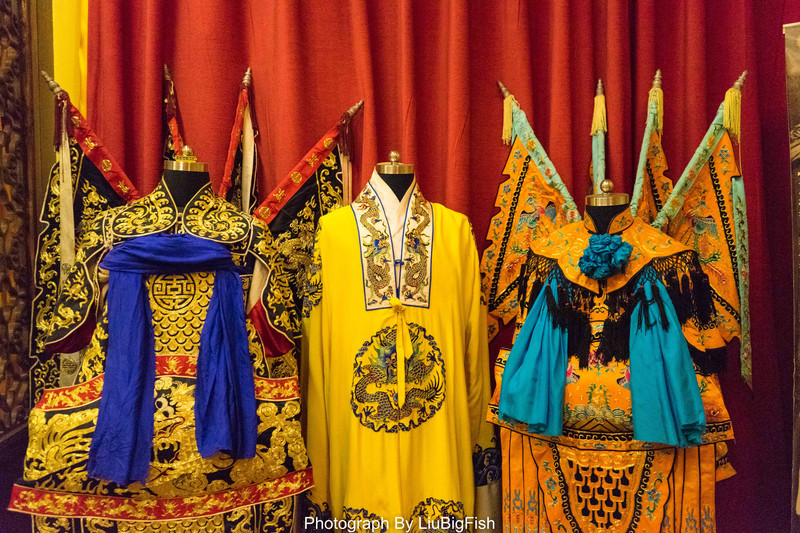
In the seventh year of Guangxu of the Qing Dynasty, in 1881 AD, Mei Qiaoling and Sixi Class performed at Zhengyi Temple; in the eighth year of the Republic of China, in 1919 AD, Mei Lanfang teamed Lu Bu to perform on stage at Zhengyi Temple; in January 2009 AD, Mei Baojiu sang "Sitting in the Palace" on the same stage at Zhengyi Temple with descendants of the Tan School. In order to commemorate the 220th anniversary of the Huiban's entry into Beijing and the countdown to the application of Chinese Peking Opera to UNESCO, the Beijing City Traditional Culture Protection and Development Foundation and Pu Culture jointly promoted the return of Meipai art to this ancient theater with a history of three hundred years. The Peking Opera "Mei Lan Fanghua" will be premiered in the Zhengyi Temple Ancient Theater on October 12 and will be performed here for a long time in the future.
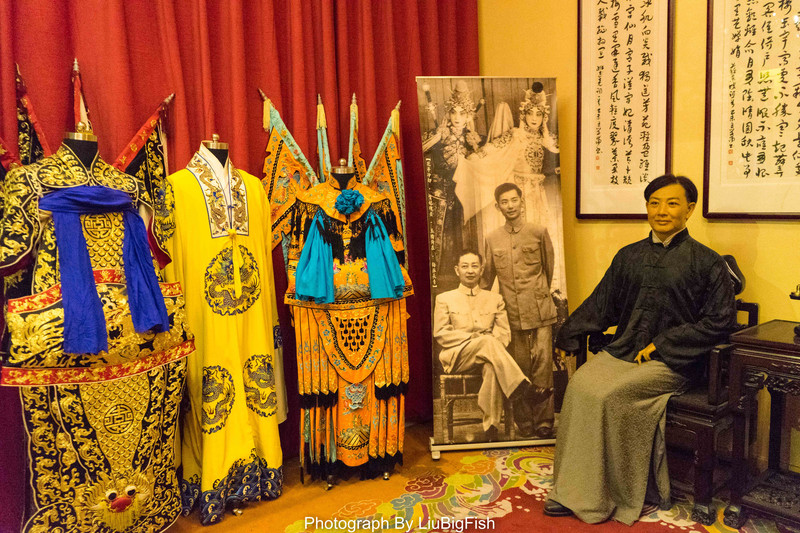
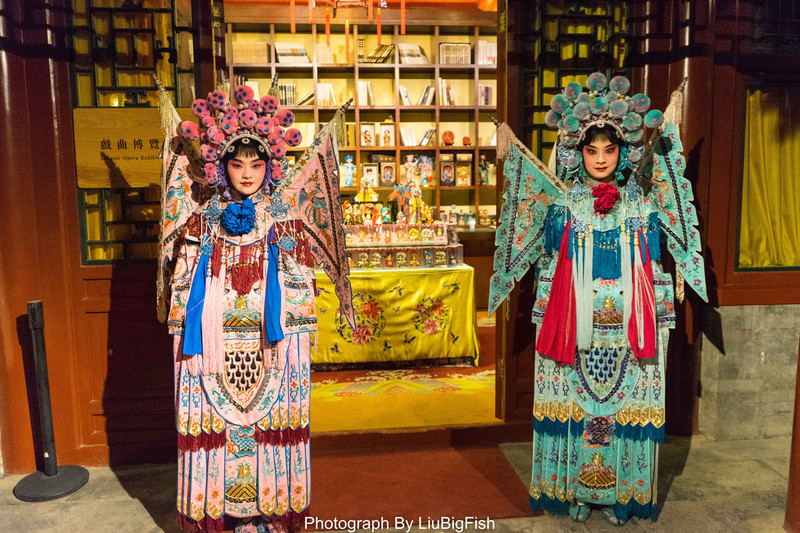
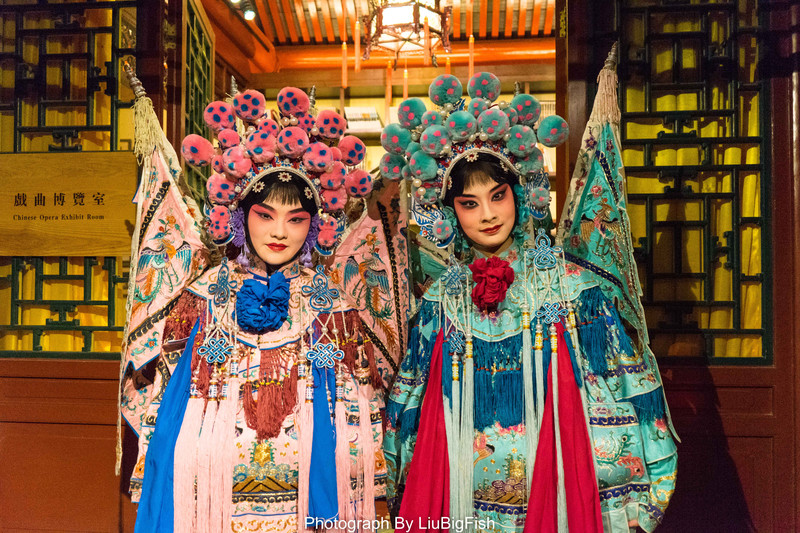
Today, I finally had the honor to meet the Mei School performing artists, every move they made.
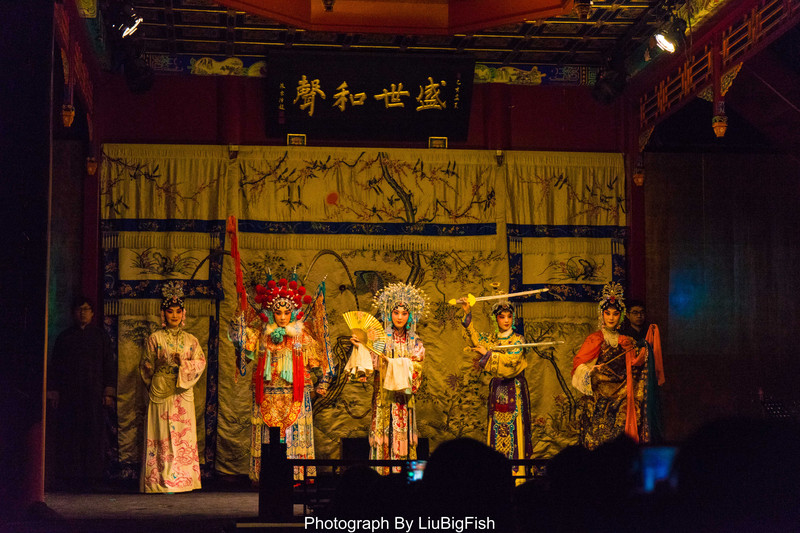
Eat high-quality muffins
In the ancient Beijing Hutong, I found a delicious and fashionable muffin shop.
As always, the decoration is in a Japanese simple style, and the overall gray tone is embellished with warm yellow light. The entire store space is simple, bright and lovely. The first floor has a bar along the wall and a wooden high chair, leading to the second floor along the medium gray steps. There is a row of seats by the window and greenery of sycamore trees stretching out in front of your eyes. It is very wonderful.
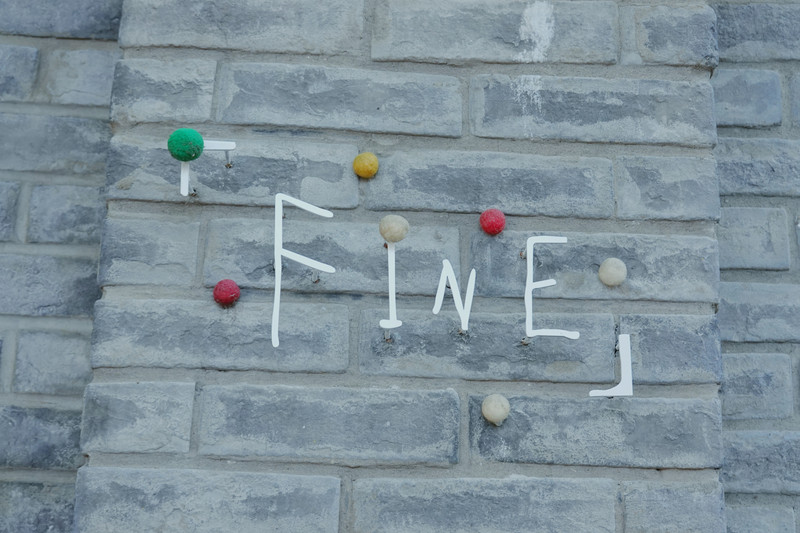
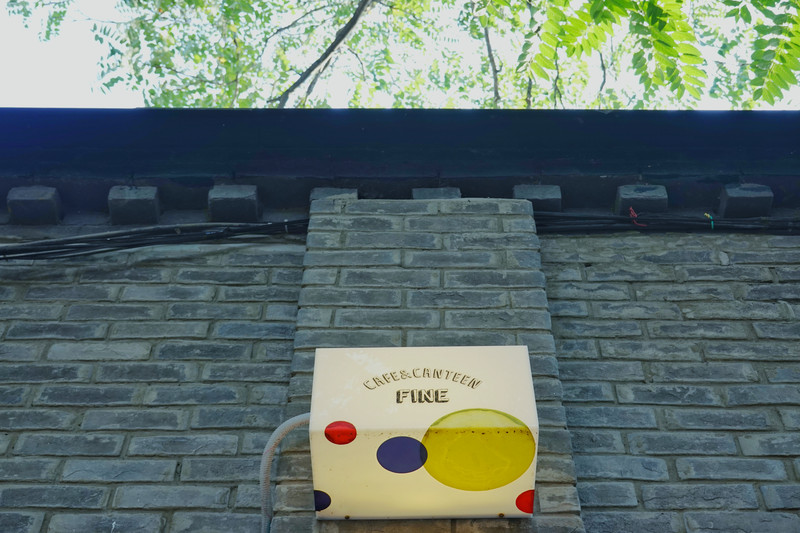
Souffrey muffins are the absolute signature that you should not let go. Souffrey is Q and plays, and is also extremely soft, tender and white. Many people can't put it down. The three plump thick muffins are very cute. They taste light and soft and delicate. They are full of air. The cream is served separately. The three pieces of souffles are surrounded by strawberries and fresh fruits, making them particularly attractive.
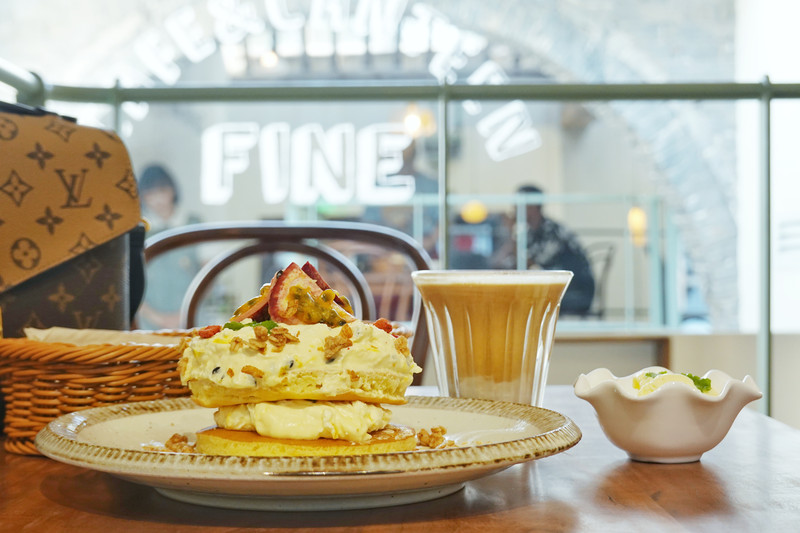
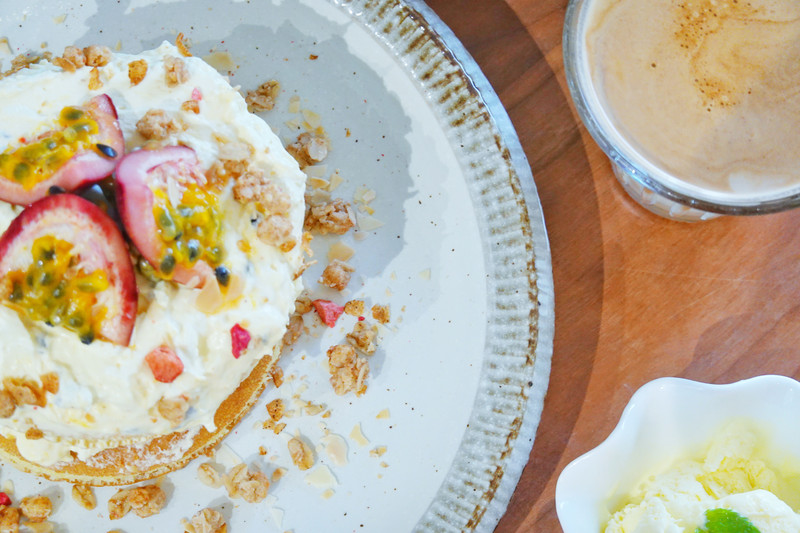

Four-course coffee and desserts are a beautiful scenery on the table, but the appearance of the goose is completely proportional to the taste!, The warm yellow light at night shines on the already beautiful food, which can produce a completely different warm effect from the daytime. There are also some wooden structures matched with retro minimalist lighting, making it easy to take ins-style photos.
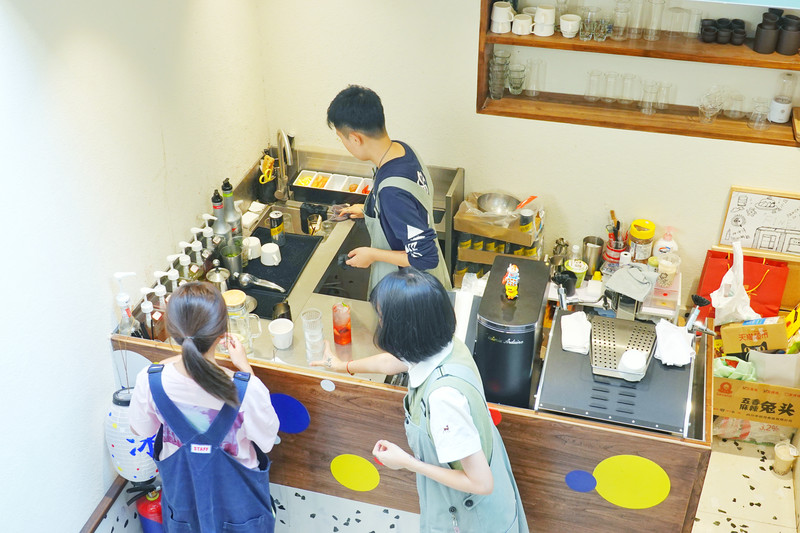
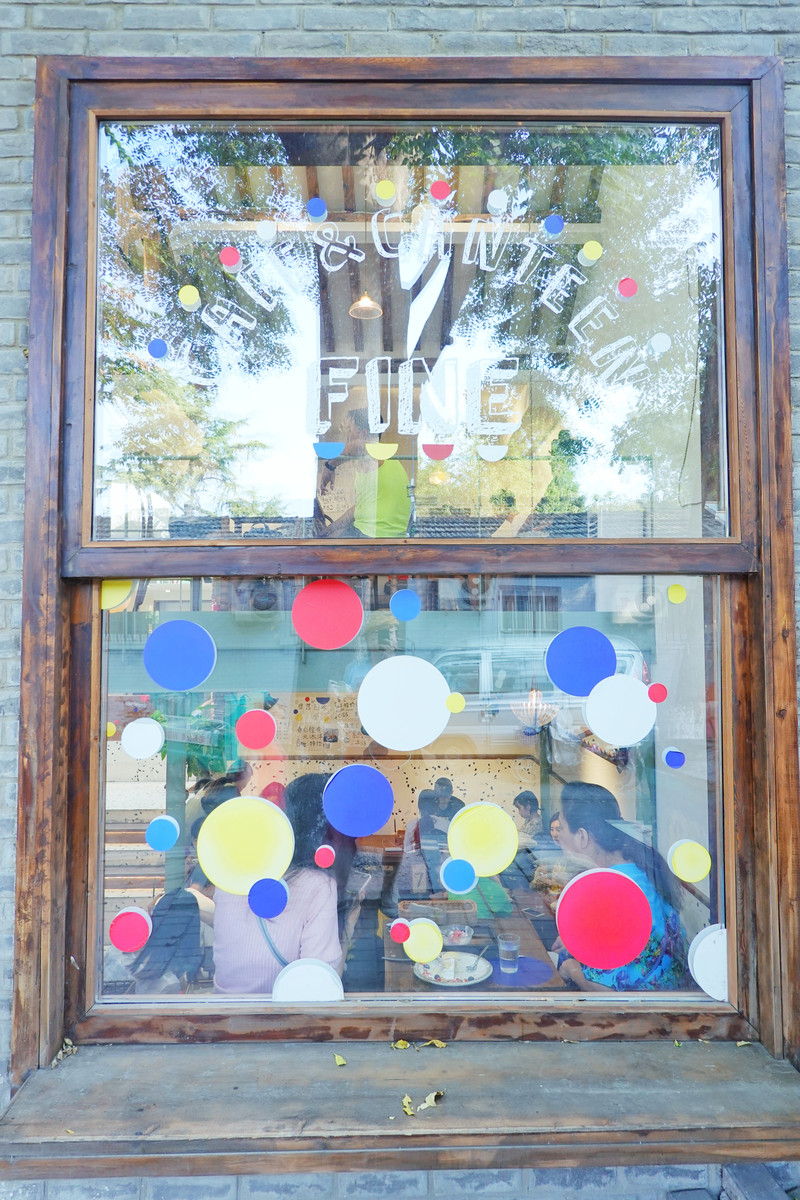
Sleep in the courtyard house in the alley
During the Qianlong period of the Qing Dynasty, this place was called Shibei Hutong. During the Xuantong period, it was divided into two branches. The northern one was called Dashibei Hutong because of its width and length. The branch lane running from north to south in the south was called Xiaoshibei Hutong. Both belonged to the Shichahai Historical and Cultural Reserve.
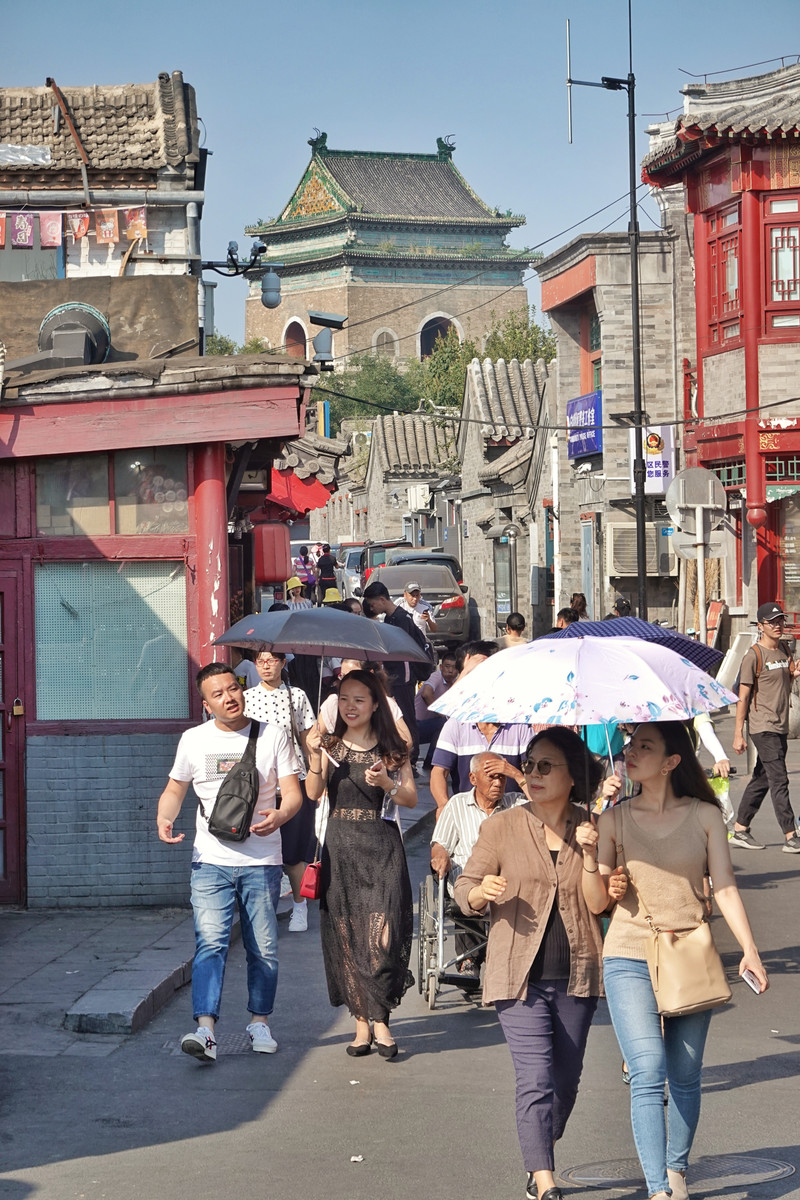
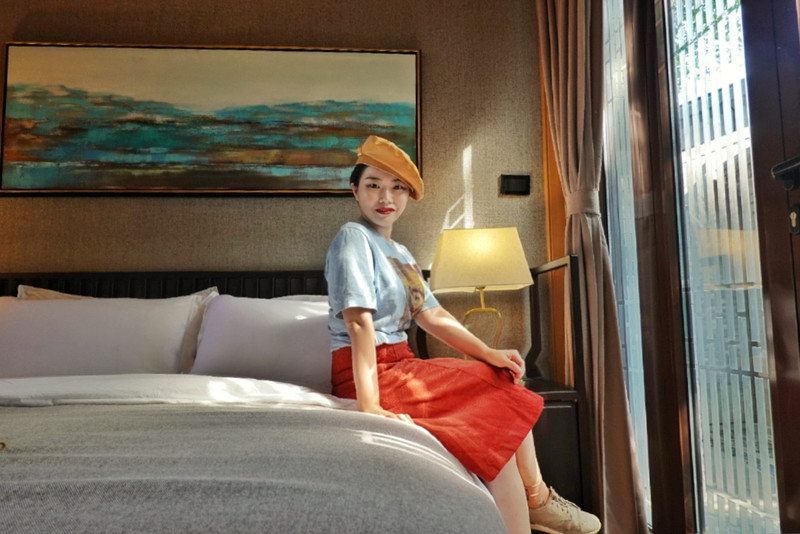
What is more worth mentioning is the story of Yandai Xie Street adjacent to Dashibei Hutong:
According to the book "Old News of Sunset" published during the Qianlong period of the Qing Dynasty, this street was originally named "Gulou Xie Street" and renamed "Yandai Xie Street" in the late Qing Dynasty.
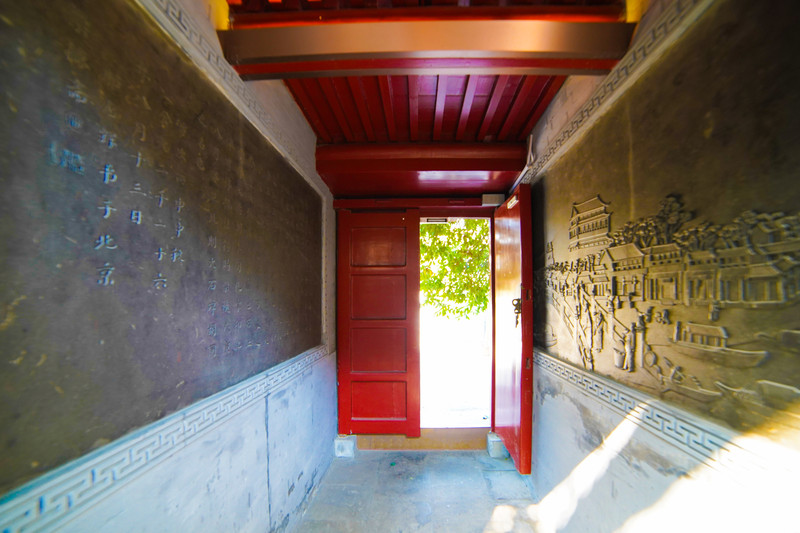
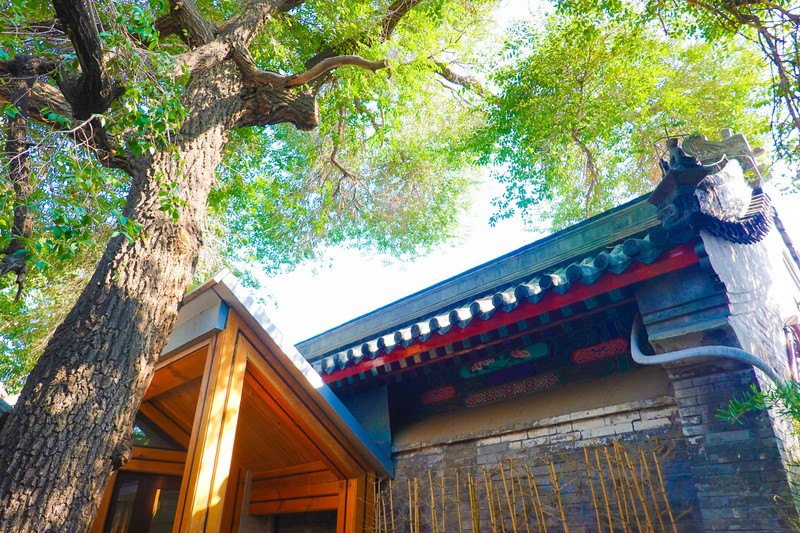
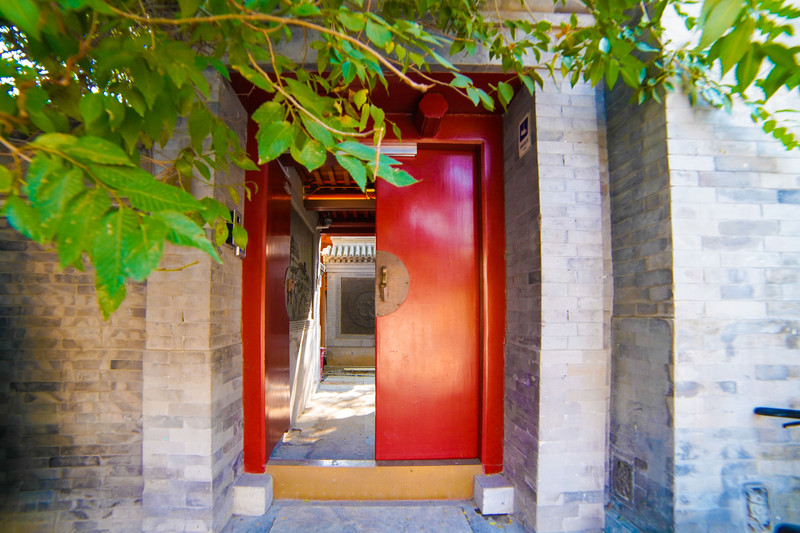
It is said that most of the banner people living in the northern city at that time liked to smoke dry tobacco or hookah, and the tobacco leaves were packed in tobacco bags. As the demand for cigarette bags is increasing day by day, cigarette bag shops have been opened one by one on the inclined street. Most of the cigarette bags shops on this street have high steps, and a large wooden cigarette bag is erected in front of the door as a cover. The black tobacco pipe pole and the golden tobacco pipe pot are really vivid and vivid. There is a "Shuangshengtai" cigarette bag shop on the north side of the east exit of Yandai Xie Street. There is a large wooden cigarette bag standing in front of the door. It is as tall as a person and as thick as a rice bowl. The golden yellow cigarette bag is also tied with a red silk tassel, which is very eye-catching. This "Shuangshengtai" big cigarette bag is really the number one big cigarette bag in the same industry in Beijing.
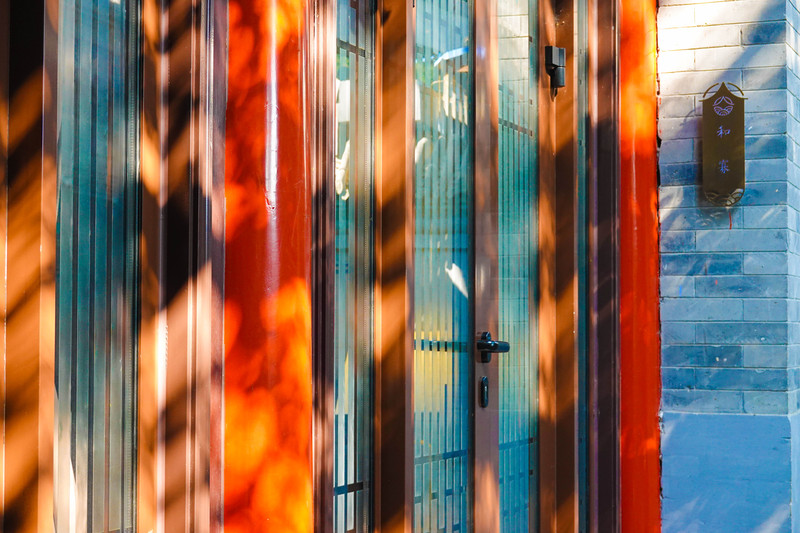
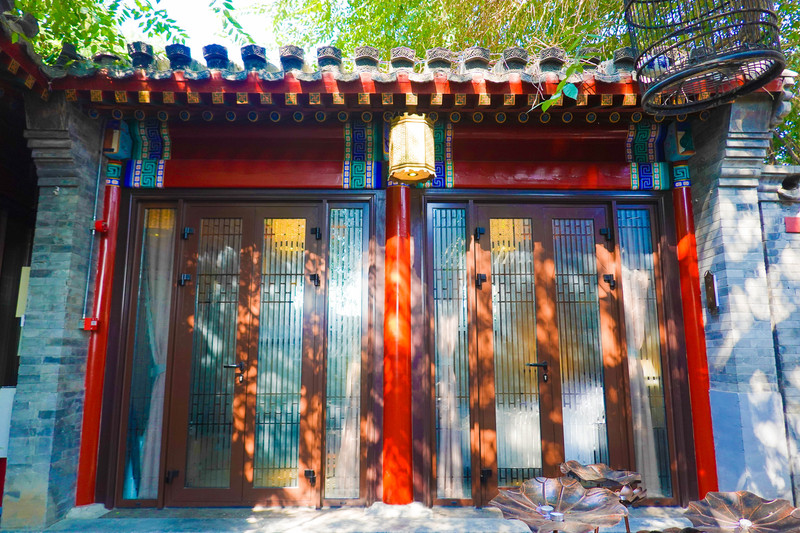
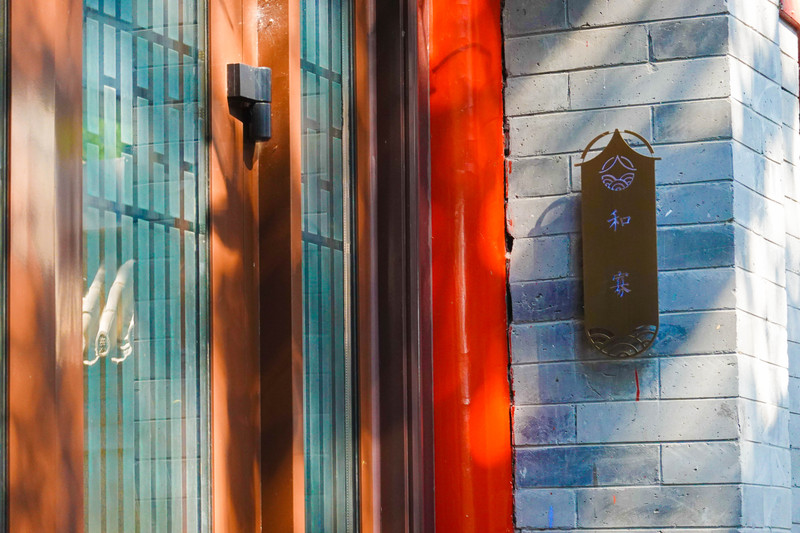
In addition, the Tobacco Bag Slope Street itself is like a tobacco bag. The slender street is like a tobacco pipe, the entrance at the east end is like a tobacco pipe, and the entrance at the west end turns to the south and leads to the Yinding Bridge, which looks like a tobacco pipe pot. It is precisely for these two reasons that the name of Xiejie after "cigarette bags" is truly worthy of the name. The name of Yandai Slope Street became louder and louder and has been circulated.
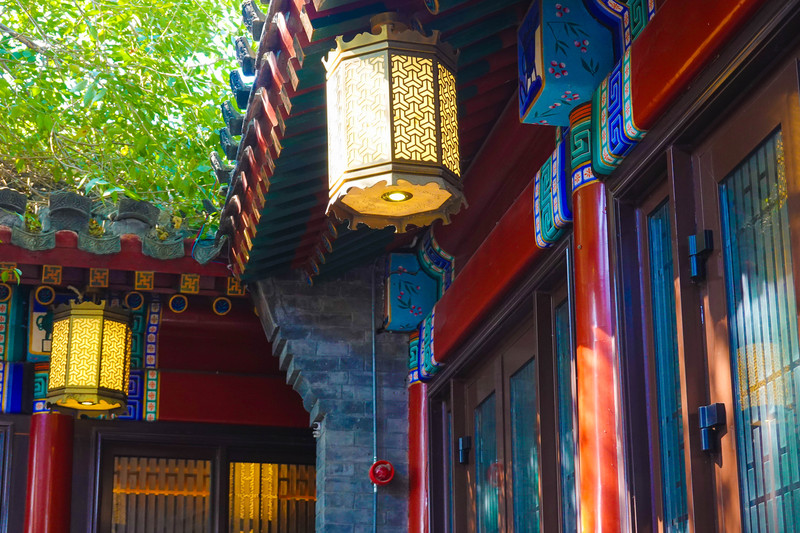
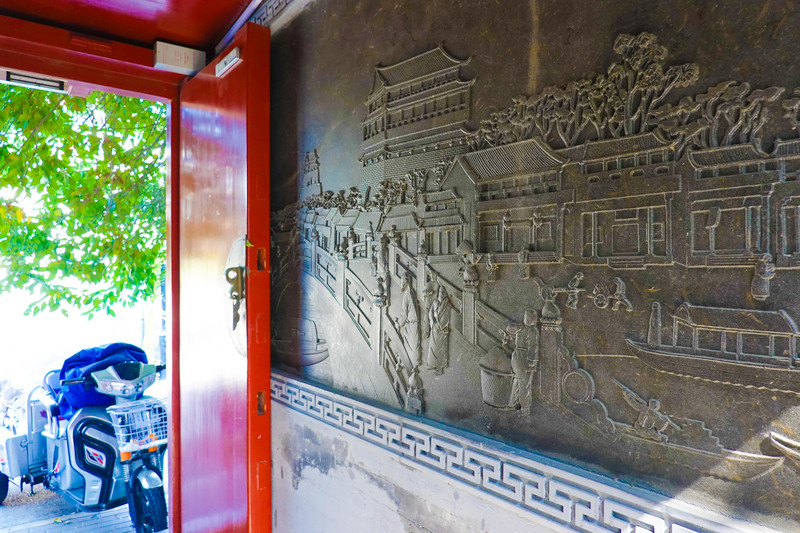
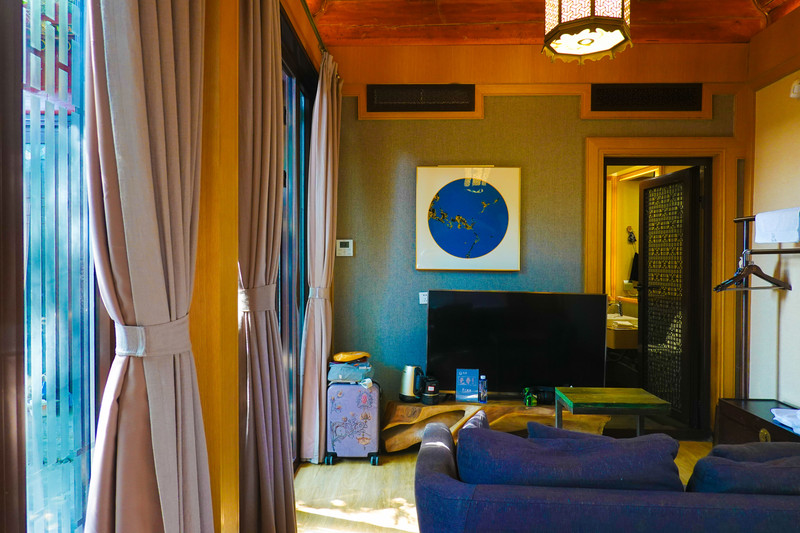
The room I chose is called "harmonious widowed", which I think probably comes from the meaning of "harmonious widowed". The owner of a B & B seems to be defining the fate of staying in a B & B-it is hard to find a friend, and I hope I can meet you unexpectedly in the vast sea of people.
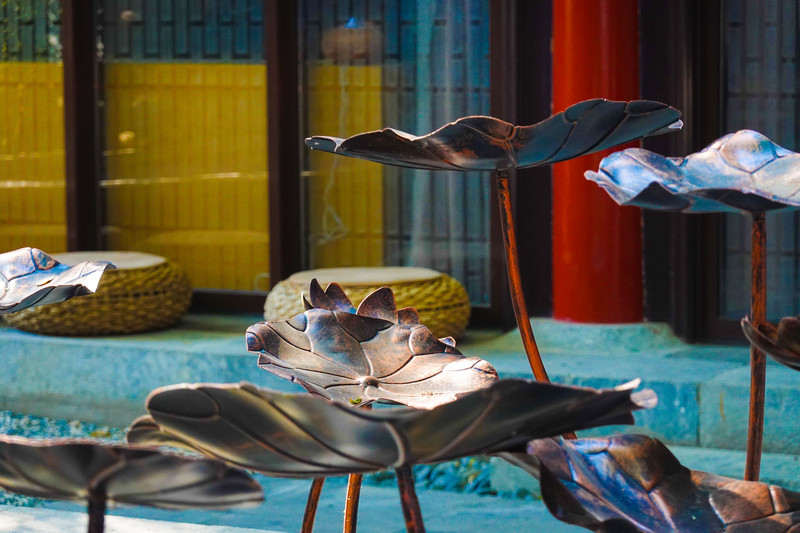
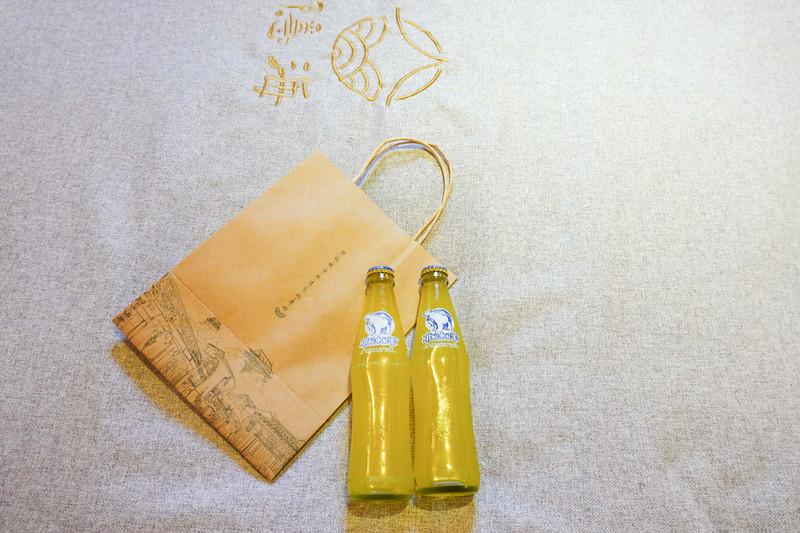
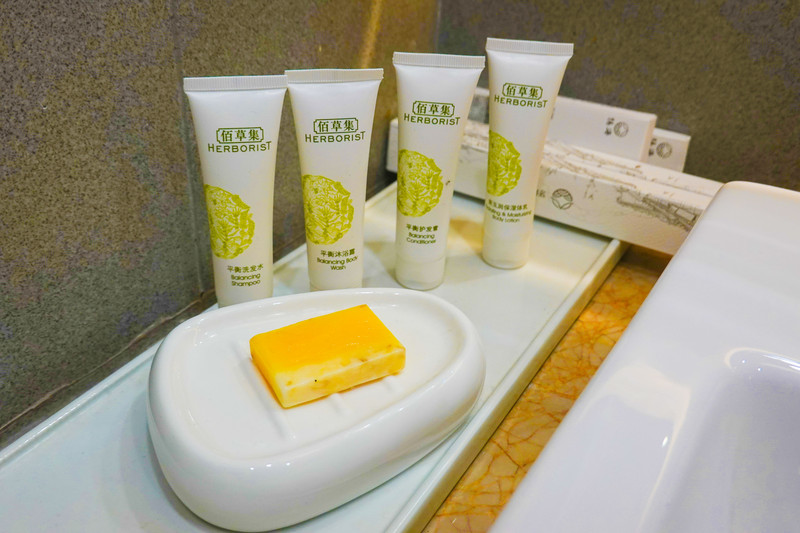
Step into the Red Gate, pass through the stone tablet walls and shadow walls, and you will be greeted by tranquility. The room design is positioned in a Chinese wood art style, integrating the dual qualities of solemnity and elegance, recombining traditional elements, making it simple and simple, and elegant in style. The home decoration adopts the color of raw wood, meticulous workmanship, and the flavor added by the passage of time. Everything constitutes a pure and sincere Chinese charm, like a classic old song, allowing people to feel the charm of oriental culture in the flowing notes.
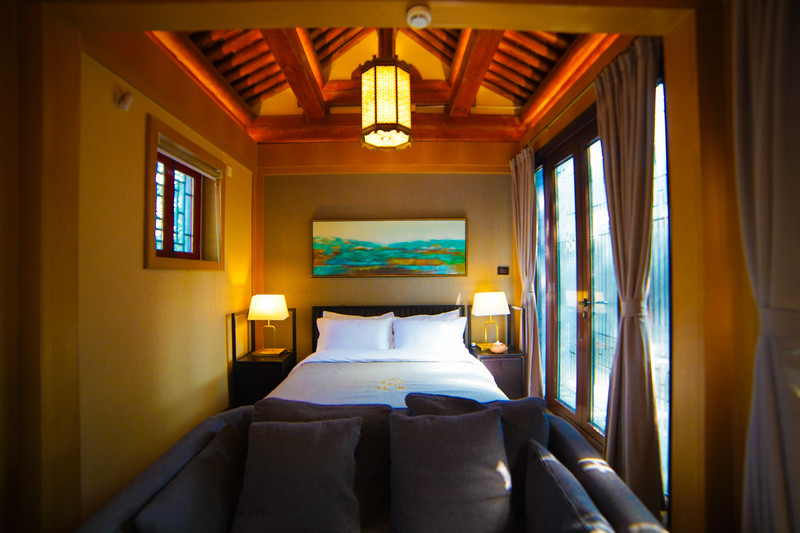
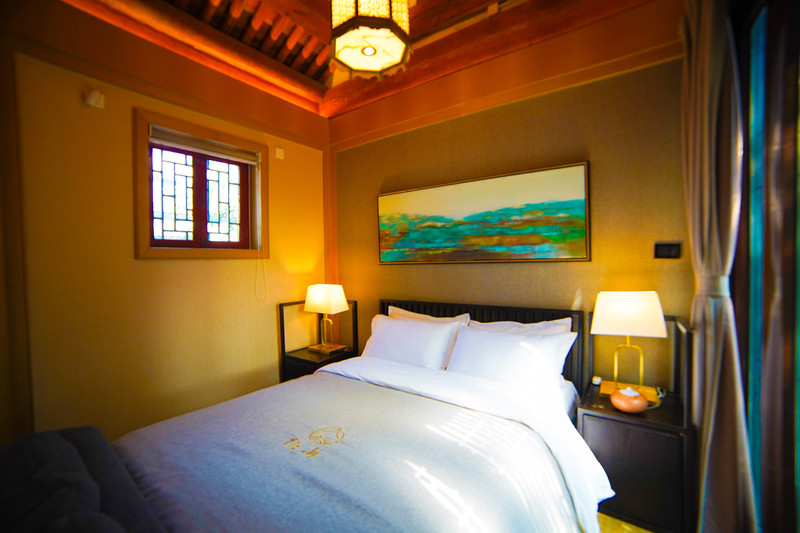
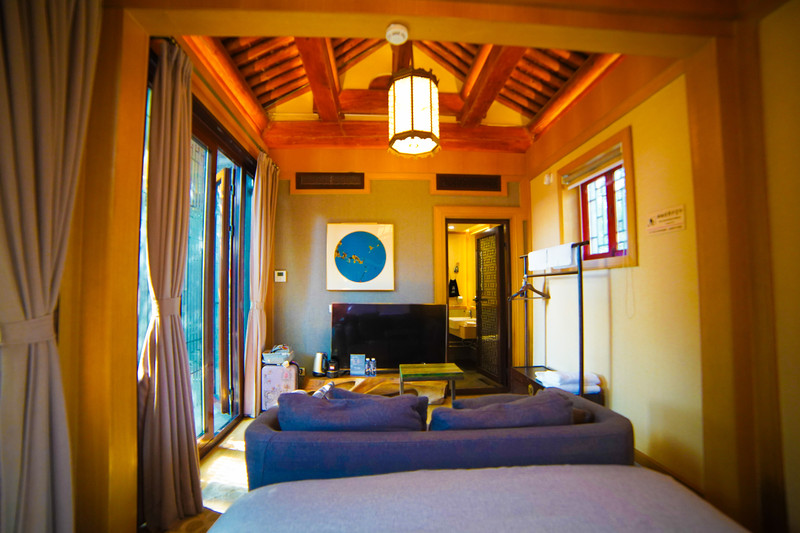
In the courtyard, there is a lotus pond with moonlight, flowing water and people. The room talks about life with laughter, leisurely and elegant. Living in old Beijing hutongs, you can get everything you want here.
Book through Tujia's official website, Beijing short-term rental accommodation in> Xicheng District B & B| Short-term rental housing> hidden in the sea "Harmony and Widows·Attracting Merchants" Chinese Courtyard on Yandai Slope Street.
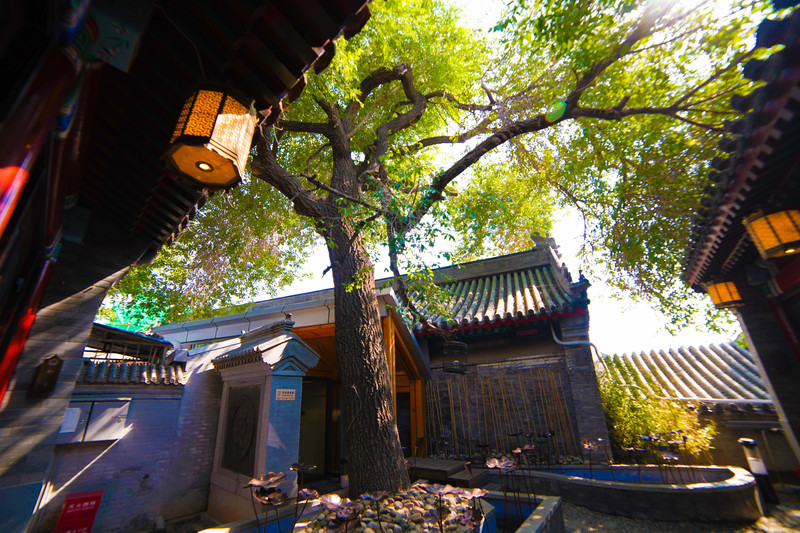
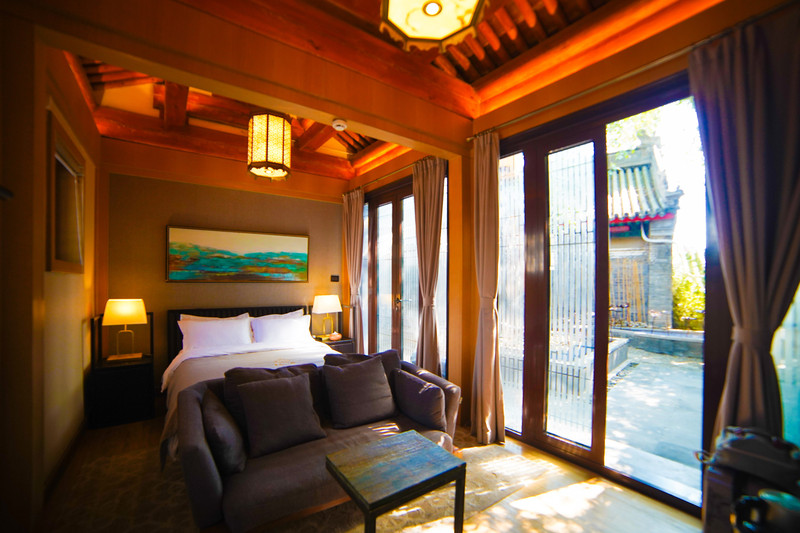
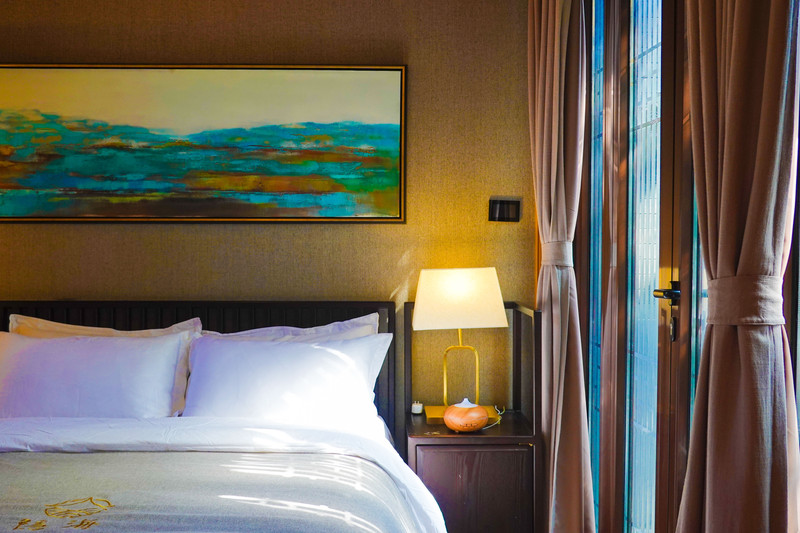

Previous Article:[Walking through snowy Beijing] At the end of the year, the most complete guide for eating, drinking and having fun in the capital is for you!
Next Article:Tour the "Most Beautiful Grassland in the World"(2019.9 Keshiketeng Tour)
